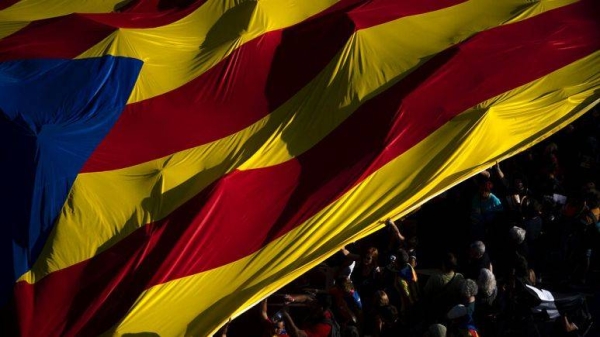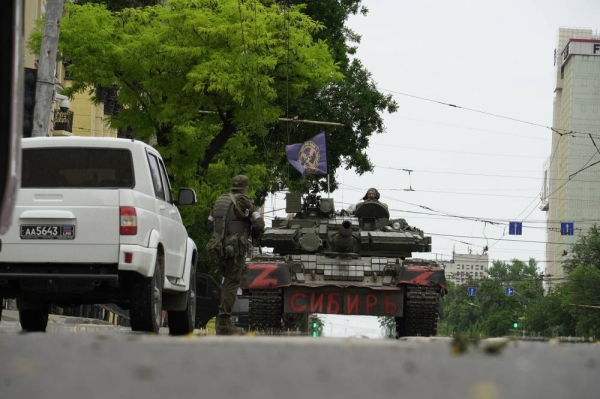
As a tense calm settled over Catalonia on Monday after Madrid imposed direct rule over the region, Spain’s state prosecutor demanded that charges of rebellion and sedition be laid down against Catalan leaders over their secessionist push.
Attorney General Jose Manuel Maza also called for charges of misuse of funds to be brought against them.
Under Spains legal system, the request goes to a judge for consideration. Maza asked the judge to call the secessionist leaders to testify.
Meanwhile, work resumed normally in Catalonia after it had defied the central government and declared independence on Friday. The move prompted Prime Minister Mariano Rajoy to sack its secessionist government and call a snap election for December 21.
Officials were waiting to see if Catalan leaders would head to their offices despite their sacking.
However, some of the most prominent members of the Catalan administration, including its president Carles Puigdemont and vice president Oriol Junqueras, had said they would not accept the move and only the people of Catalonia could dismiss them.
Most sacked Catalan leaders remained ambiguous on Monday and stopped short of directly defying Spain’s authority. There were no signs of any spontaneous demonstration taking place.
Puigdemont posted a picture from within the regional government headquarters on Instagram but he was not seen entering the building, suggesting the photo may have been taken by someone else.
Regional transport chief Josep Rull posted on Twitter a picture of him working in his office but he was later seen leaving the building. Spain’s transport minister said in a radio interview Rull would be allowed to collect his personal belongings but not work there.
When he left, Rull said he would now attend a meeting of his PdeCat party (Catalan Democratic Party).
Other regional leaders did not turn up to their offices though some of their staff did.
One of 140 senior officials appointed directly by the outgoing government described the situation as “normal” and said he had not yet received any letter of dismissal.
“We civil servants want everything to be normal. Things have to carry on. The day-to-day work still has to be done,” said the official, who works with former Catalan vice-president Junqueras.
Two hundred thousand public sector workers receive salaries paid by the Catalan region, and another 100,000 in the region directly on the Madrid government.
Hundreds of thousands of supporters of a unified Spain marched on Sunday in one of the biggest shows of force yet by the so-called silent majority that has watched as regional political leaders push for Catalan independence.
Two opinion polls also showed support for independence may have started to wane. A Sigma Dos survey published in El Mundo showed 33.5 percent Catalans were in favor of independence while a Metroscopia poll published by El Pais put that number at 29 percent. This compared to 41.1 percent in July according to an official survey carried out by the Catalan government.
Opponents of secession largely boycotted the referendum, when participants voted overwhelmingly for independence on turnout of 43 percent.
Spain’s interior ministry named a new chief for the regional police on Saturday who has insisted that the 17,000 officers of the force should remain neutral. Interior Minister Juan Ignacio Zoido praised the police for their work in an open letter on Sunday and urged them to accept temporary direction from Madrid.
“We have opened a new chapter and in this new chapter the Mossos d‘Esquadra will become again the police of all the Catalans. This is your duty,” Zoido said in the letter, using the title of the Catalan police force.
The Spanish government is giving time to the members of the ousted Catalan cabinet to take their personal belongings from official buildings. But Madrid is warning them that they face criminal charges if they attempt to perform any official duties.
Zoido said the government was giving the separatist politicians "a few hours" of time because the goal was "to recover normality in a discreet way and under the principle of minimal intervention" from central authorities.
Catalan separatist politicians held meetings in Barcelona later on Monday with their eyes set on the regional election set by Rajoy.
Spains Foreign Minister Alfonso Dastis said Sunday it was "hard to see" how Puigdemont and the others “will go on governing".
"Reality is already sinking in, will continue sinking in and they will realize that they cannot do something without the authority of law," he told Britains Sky News.












